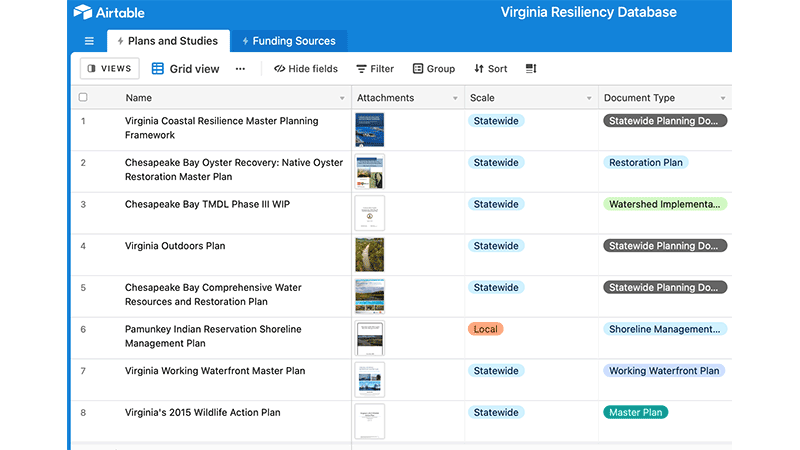
Coastal Resiliency Database
The Coastal Resiliency Database compiles proposed projects, plans, studies, and funding sources that support flood resiliency within Virginia’s Coastal Zone.
Accelerating resiliency planning in communities across the Commonwealth

The Coastal Resiliency Database compiles proposed projects, plans, studies, and funding sources that support flood resiliency within Virginia’s Coastal Zone.
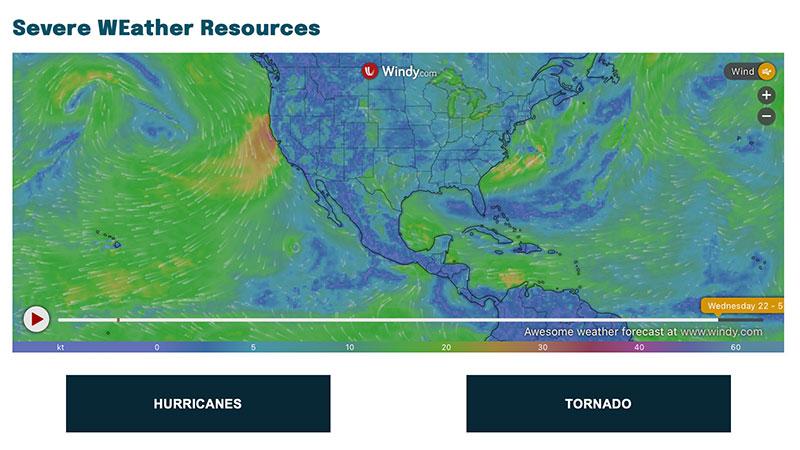
Virginia Cooperative Extension’s Severe Weather Resources site offers valuable research-based information to support communities preparing and recovering from disasters.
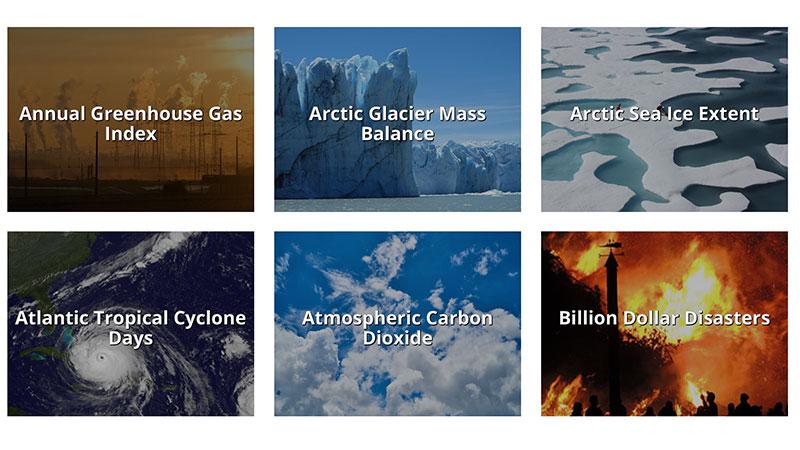
The USGCRP Indicators Catalog includes observations or calculations that can be used to track physical, ecological, and social conditions and trends related to climate.
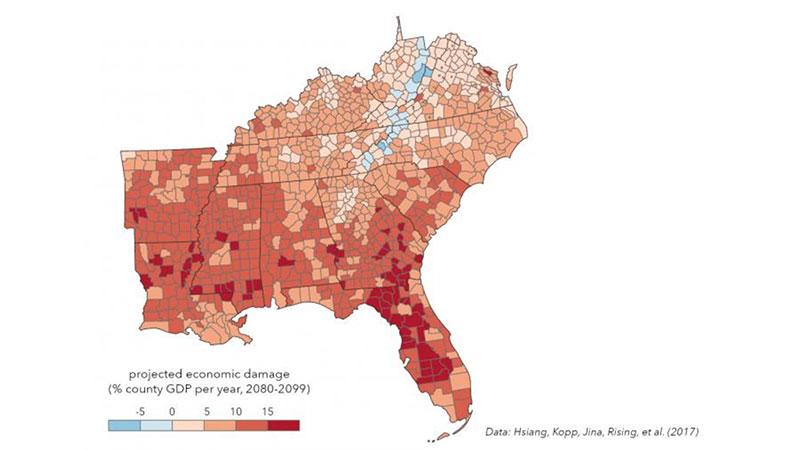
The Southeast U.S. Climate Resilience Toolkit provides information on potential climate hazards in the Southeast region of the U.S. and how to prepare for them in order to protect vulnerable assets they identify.
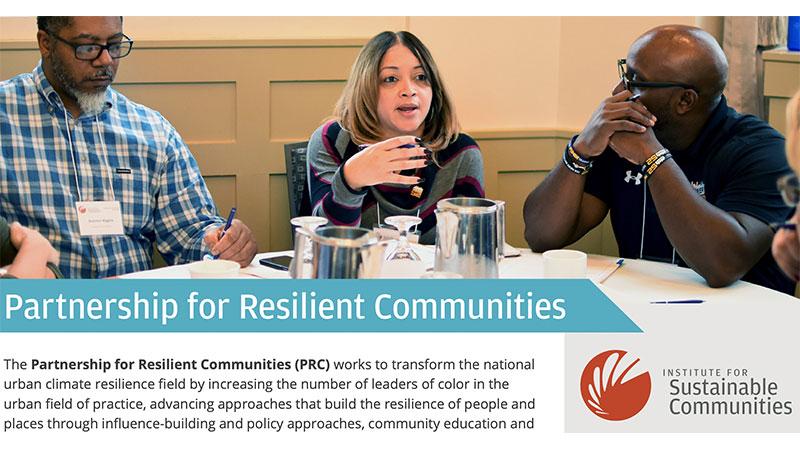
The PRC works to ensure that leaders and organizations of color are fully participating in and lead climate resilience planning and decision-making, leading to policies and practices informed and designed by those closest to the problems.
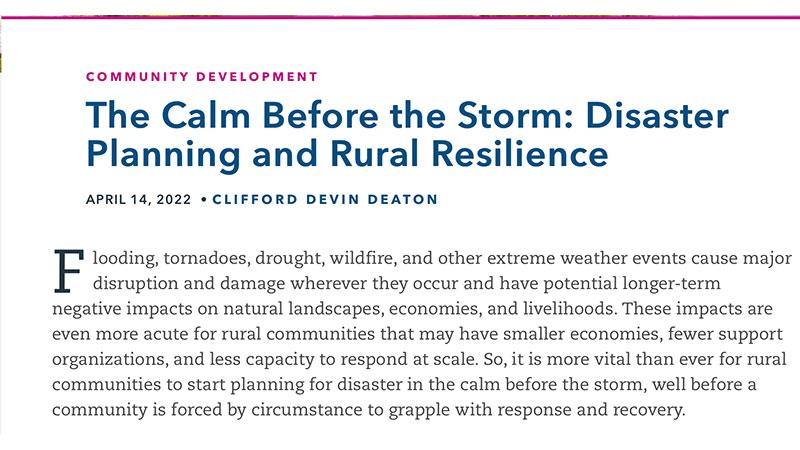
The Aspen Institute’s blog curates lessons and resources from the Thrive Rural Open Field session for rural and tribal communities.

The National League of Cities’ Sustainability and Resilience initiative supports and celebrates city-led sustainability and resilience efforts through Local Solar Energy Leadership and Leadership in Community Resilience.
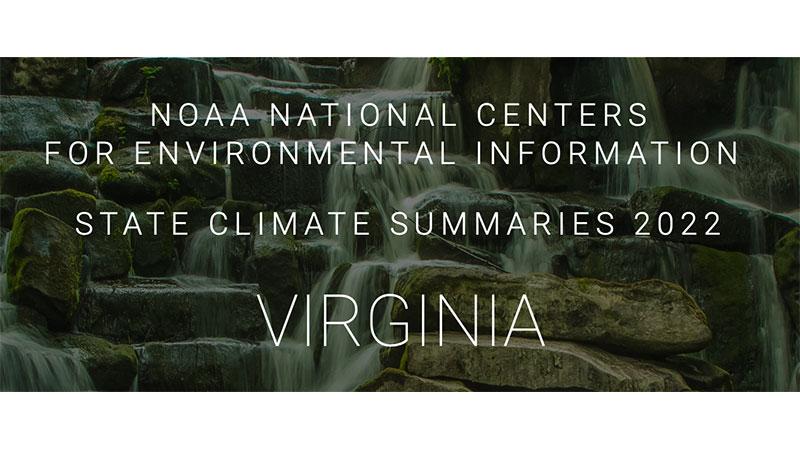
The NOAA National Centers for Environmental Information offers key messages about the current climate of Virginia based on cumulative temperature and weather data.
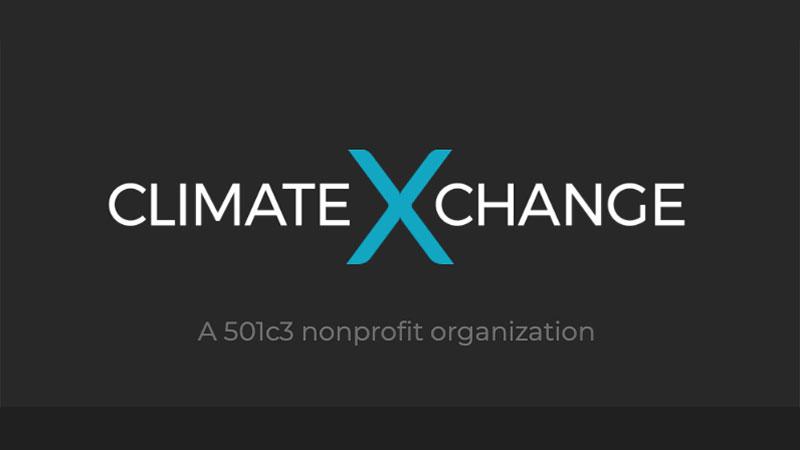
Climate XChange’s State Climate Policy Resource Hub provides information, resources, and model rules on over 50 state climate policies across seven distinct policy areas.

The Coastal Resiliency Database compiles proposed projects, plans, studies, and funding sources that support flood resiliency within Virginia’s Coastal Zone.

Virginia Cooperative Extension’s Severe Weather Resources site offers valuable research-based information to support communities preparing and recovering from disasters.

The USGCRP Indicators Catalog includes observations or calculations that can be used to track physical, ecological, and social conditions and trends related to climate.

The Southeast U.S. Climate Resilience Toolkit provides information on potential climate hazards in the Southeast region of the U.S. and how to prepare for them in order to protect vulnerable assets they identify.

The PRC works to ensure that leaders and organizations of color are fully participating in and lead climate resilience planning and decision-making, leading to policies and practices informed and designed by those closest to the problems.

The Aspen Institute’s blog curates lessons and resources from the Thrive Rural Open Field session for rural and tribal communities.

The National League of Cities’ Sustainability and Resilience initiative supports and celebrates city-led sustainability and resilience efforts through Local Solar Energy Leadership and Leadership in Community Resilience.

The NOAA National Centers for Environmental Information offers key messages about the current climate of Virginia based on cumulative temperature and weather data.

Climate XChange’s State Climate Policy Resource Hub provides information, resources, and model rules on over 50 state climate policies across seven distinct policy areas.
The Lincoln Institute of Land Policy’s Consortium for Scenario Planning is hosting its ninth annual conference February 4–6, 2026, at the University of Utah in Salt Lake City, Utah. Cohosted by the Lincoln Institute, the…
Resilient Virginia Collaborative Alliance Agriculture Working Group monthly meeting. Anyone is welcome to join the conversation!
RVCA Agriculture Working Group
Thursday, October 23 · 11:00am – 12:00pm
Time zone: America/New_York
…
Resilient Virginia’s 2026 Resiliency Academy is a 10-session webinar series designed to help communities understand change, reduce risk, and build long-term resilience using practical, systems-based, and equity-centered approaches.
Virginia is facing growing challenges from sea-level rise, recurrent flooding, extreme heat, and economic disruption—making coordinated resilience planning more essential than ever.
Beginning in 2026, Resilient Virginia will launch the Resilience Foundations Certificate Program, a first-of-its-kind professional development initiative that brings together leaders from government, business, academia, and community organizations to advance systems-level resilience across the Commonwealth.
The Power of Partnership … Spotlight On Webinar Series … Resilience Certificate Survey … Interactive StoryMaps Advance Climate Equity … RVCA Updates … Tackling Emerging Contaminants Water Technical Assistance … Closing America’s Wastewater Access Gap Initiative … Firewise Virginia Community Hazard Mitigation Grant Program … more.
VCU RISE has launched interactive StoryMaps to highlight environmental justice issues in Charles City County, Emporia, and Richmond. Learn how these equity-focused tools blend local data, maps, and community stories to support planning, resource access, and climate resilience.